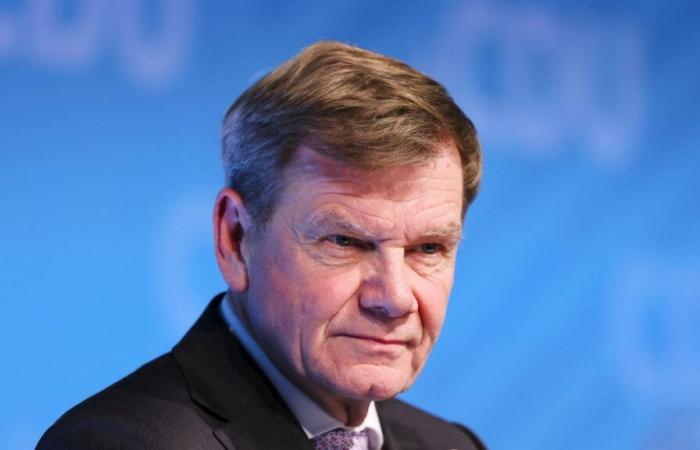When Johann WadePhul, almost 17 years ago, announced his decision to switch from the chair of an ambitious CDU parliamentary group leader in the state parliament of Schleswig-Holstein to that of a simple member of the Bundestag, there was no question of foreign policy as a future field of activity.
Two departments are of interest to him, said the 62-year-old specialist lawyer for medical and social law and lieutenant colonel at the time: labor market and defense policy. At the time, he wanted to “expand his horizon” with the move to Berlin, WadePhul explained his abruptly presented change of change.
Not every Kiel Christian Democrat took this explanation from him. Rather, some expressed the assumption that the WADEPHUL willing to change would use the Bundestag candidacy in order to finally escape the north Union that was still strongly characterized by internal resentment. As Schleswig-Holstein State Party, WadePhul had already given up in 2002 after just two years in office. In Berlin, as a member of the Bundestag constituency Rendsburg-Eckernförde since 2009, the married father of three adult children then demonstrated significantly more stamina and connectivity.
WadePhul gained first -political experiences in the Committee on Affairs of the European Union and as a member of the Parliamentary Assembly of the Council of Europe. After the 2013 federal election, he became a member of the Federal Foreign Committee and rapporteur of the CDU/CSU parliamentary group in the Bundestag for the countries of the Middle East. In 2017 the small promotion to the Union’s deputy leader of the parliamentary group, responsible for foreign and defense. However, he did not appear particularly striking in these last years of Merkel.
With Merz he can do it as well as with Günther
No shine, but parliamentary Carinthian work shaped the federal political career of the native north Frisian-the difference between Johann WadePhul and his predecessor, Annalena Baerbock from the Greens, could hardly be greater. WadePhul is a team player, not a soloist; Always loyal, sometimes almost too inconspicuous for someone who is supposed to make state for Germany in the next four years.
-In any case, the new Foreign Minister is also recognized in the party, which has also shown him a lot of skepticism in his years of Kiel. The future chief diplomat is just as connected to Schleswig-Holstein’s Prime Minister Daniel Günther (CDU), who has his place of residence in WadePhul’s constituency as well as CDU boss Friedrich Merz. In view of the always well -groomed diversity of the two, this is anything but a matter of course.
Memorial ability to listen to others and to be able to approach others are the strengths of a politician who speech the great word is not given. Wade phulic has a sufficient level of down -to -earthness. Now he has to prove that even 17 years after moving to Berlin, he still has enough energy, assertiveness and curiosity in order to explore new horizons again. And to convince the citizens of themselves and his idea of a somewhat quieter, but perhaps also a little more efficient and less polarizing form of foreign policy.
Of course, this will not be easy in times when glamor and glamor are almost a prerequisite for gaining the attention that politicians need if they want to be successful. In which important foreign policy decisions will be foreseeable in the Chancellery and not at the Werderschen Markt, the seat of the Federal Foreign Office.
But the attempt to do it differently and also a little better will do the 16th Foreign Minister of the Federal Republic, Johann Wadephul, with toughness, patience and northern German serenity.
Ulrich Exner is a political world correspondent in northern Germany and has been pursuing the political career of the future Federal Foreign Minister since his time.








